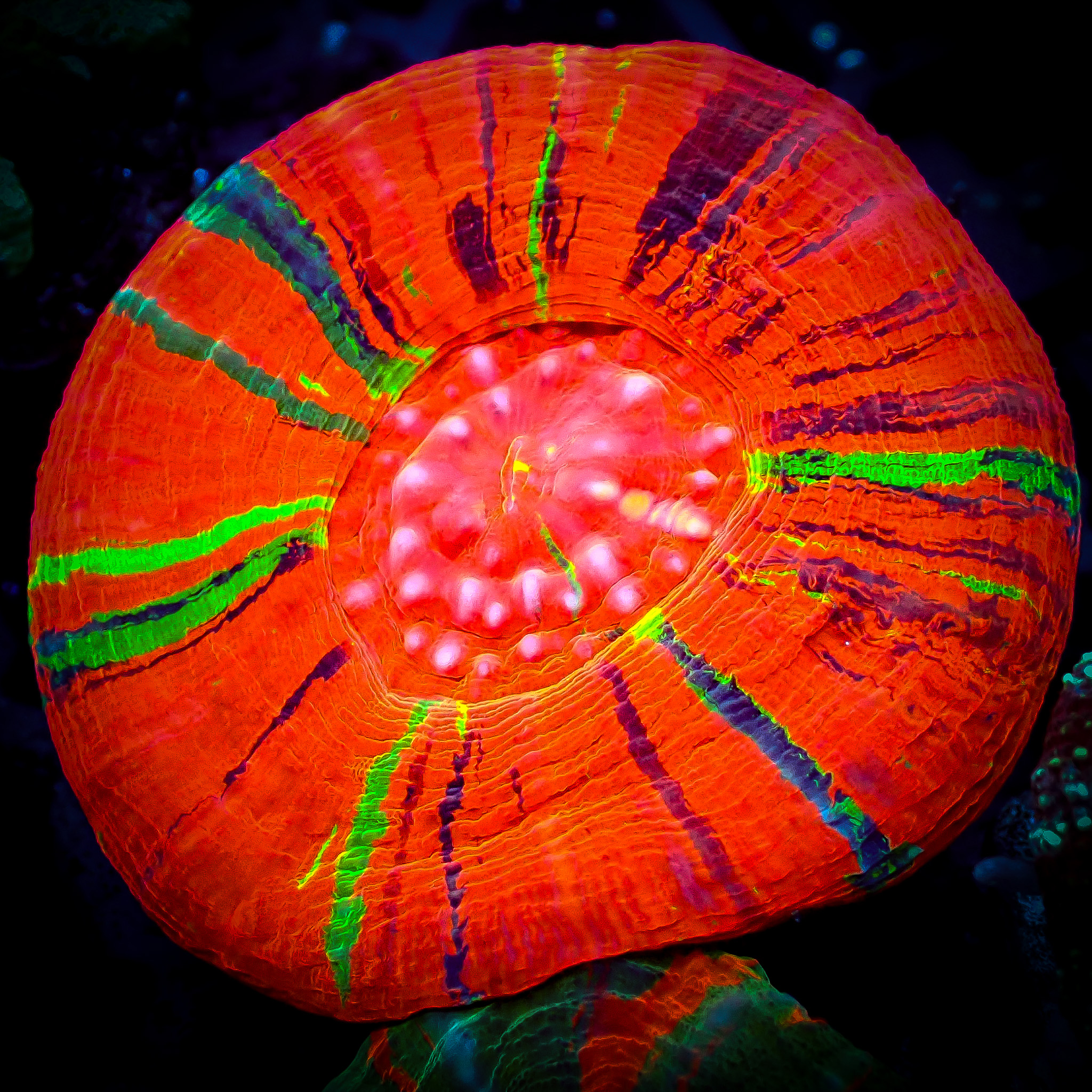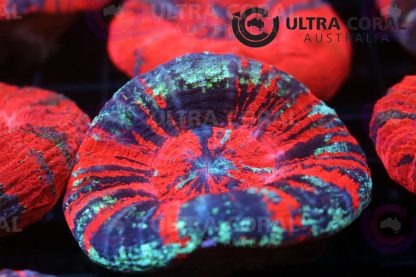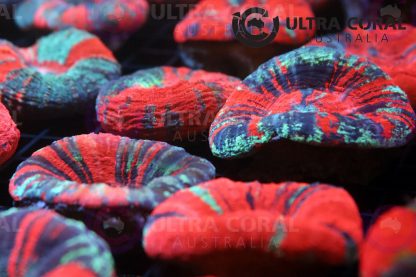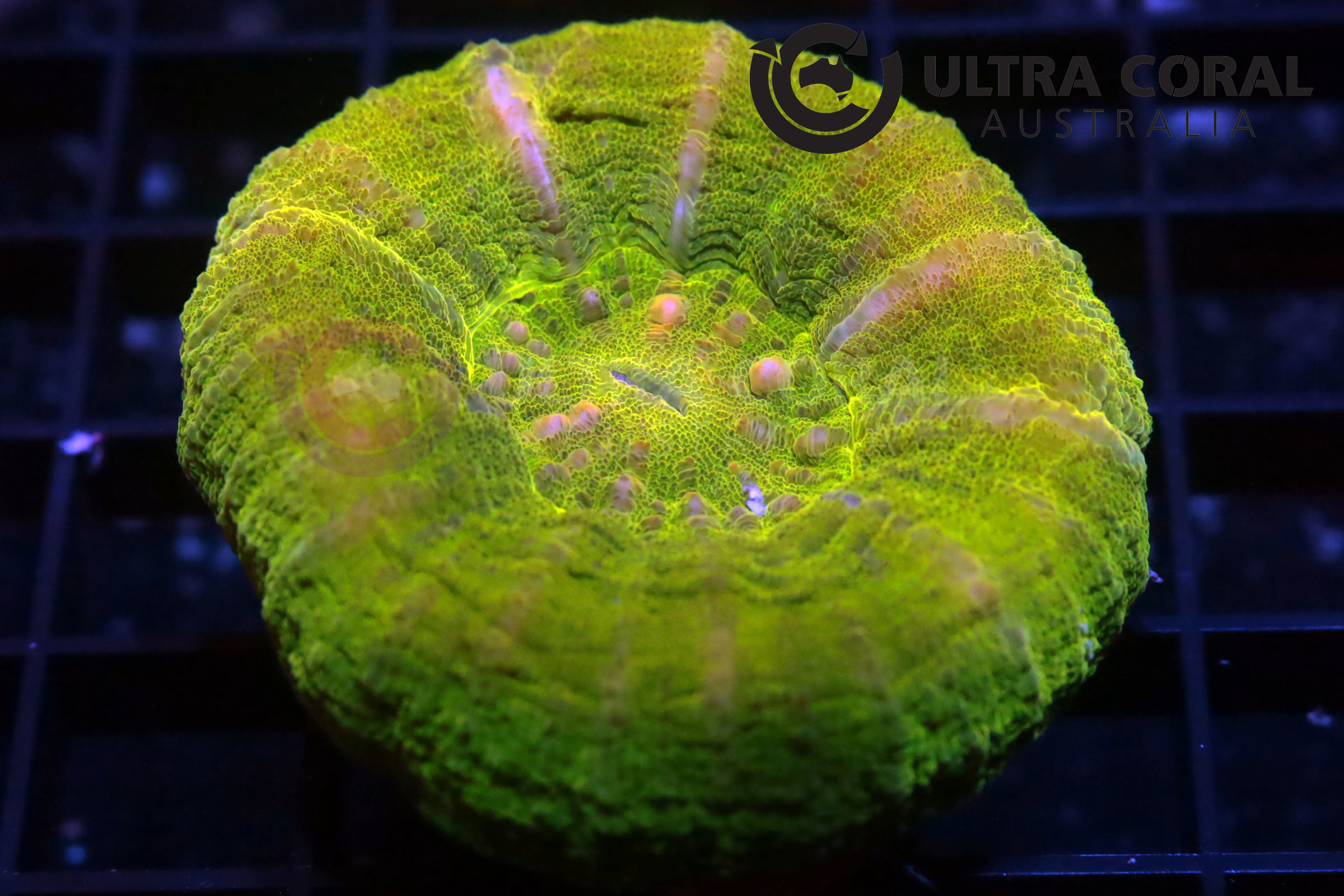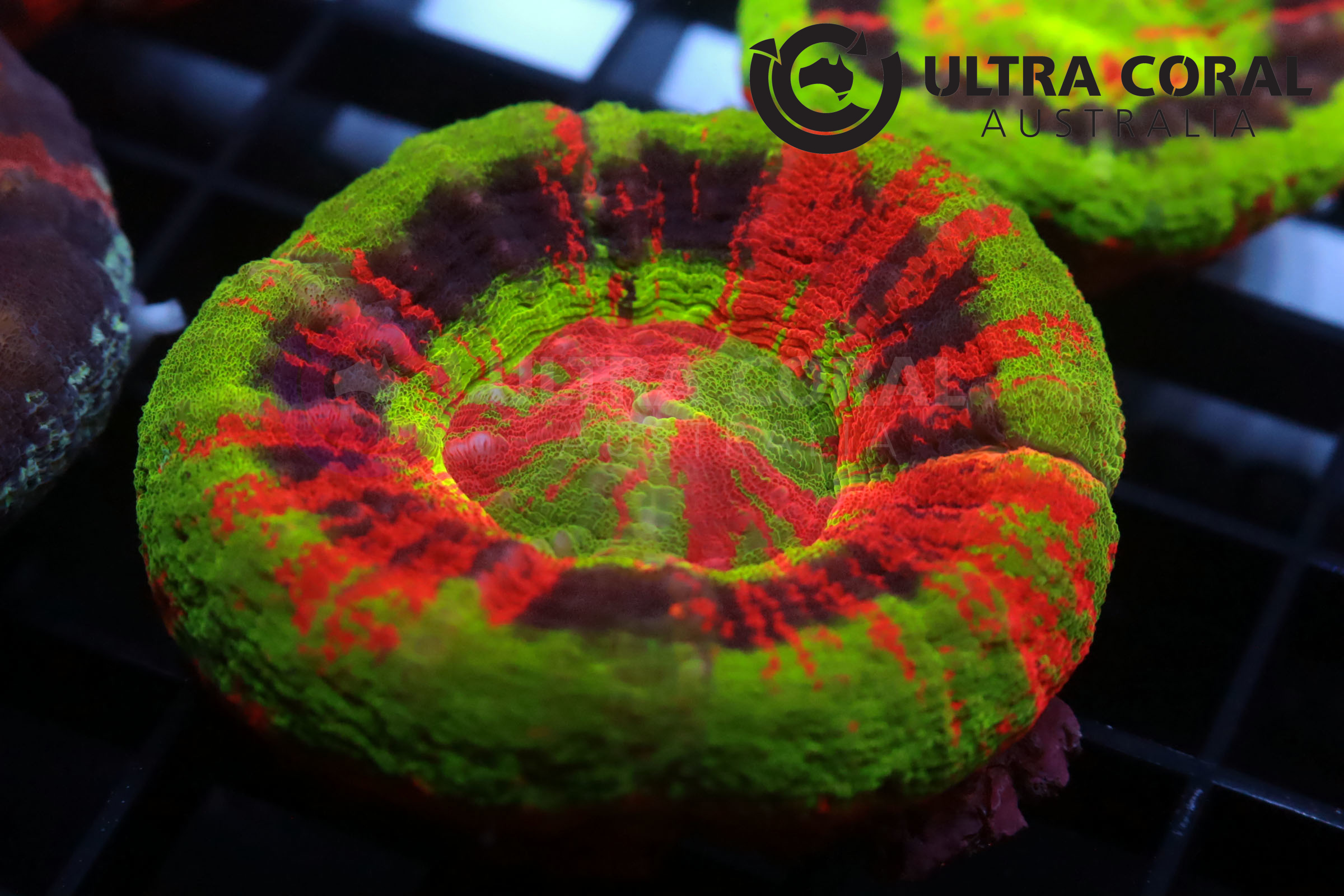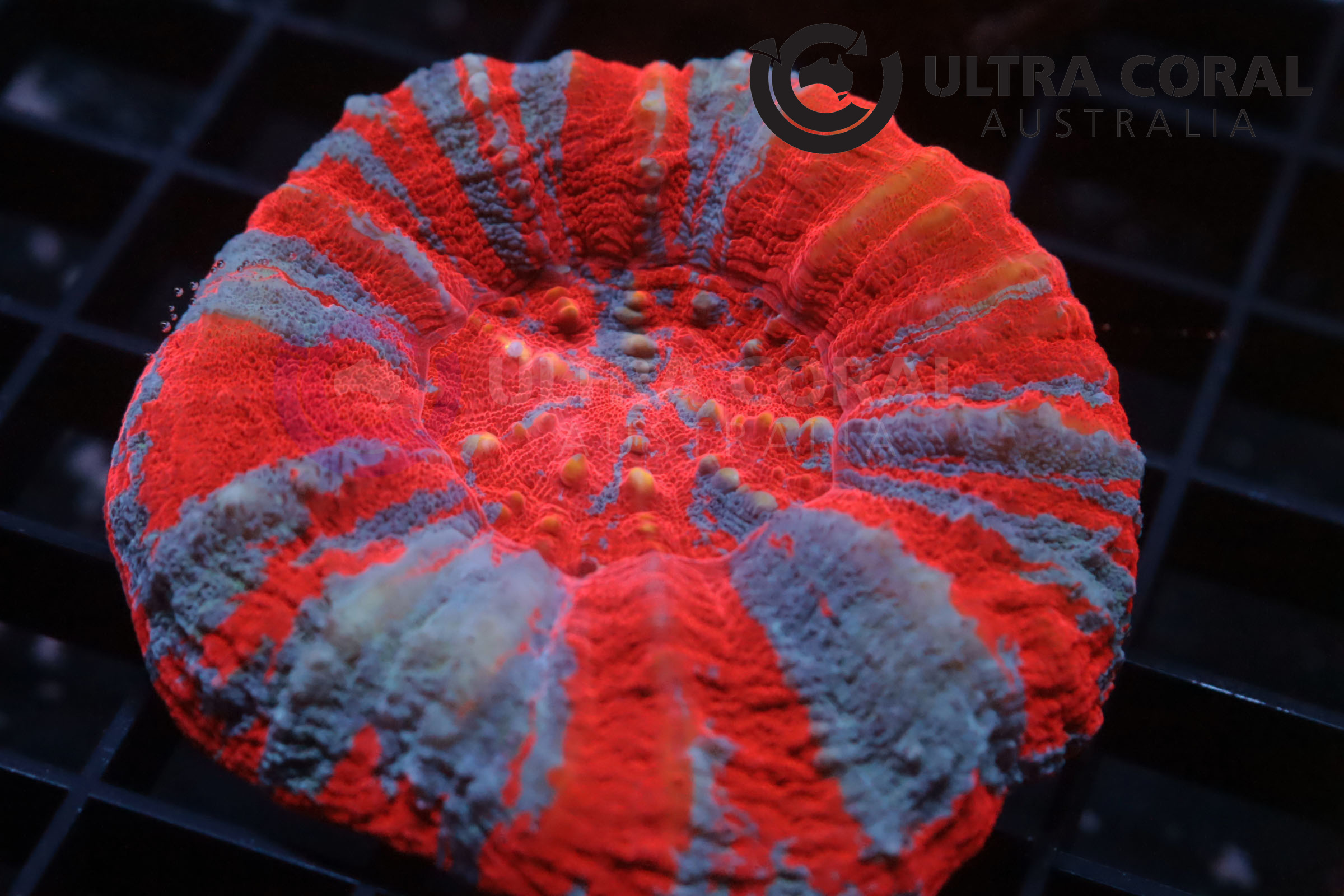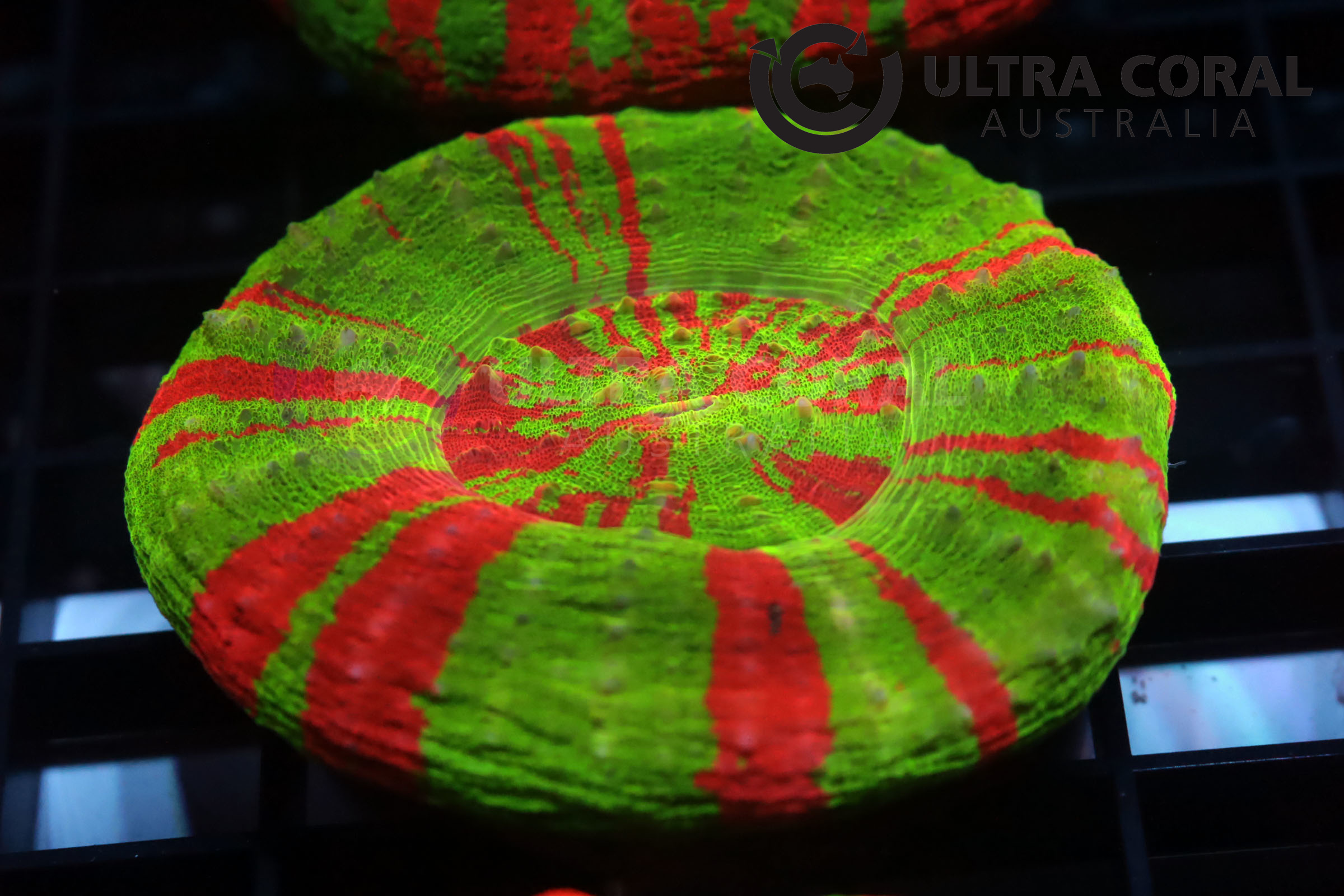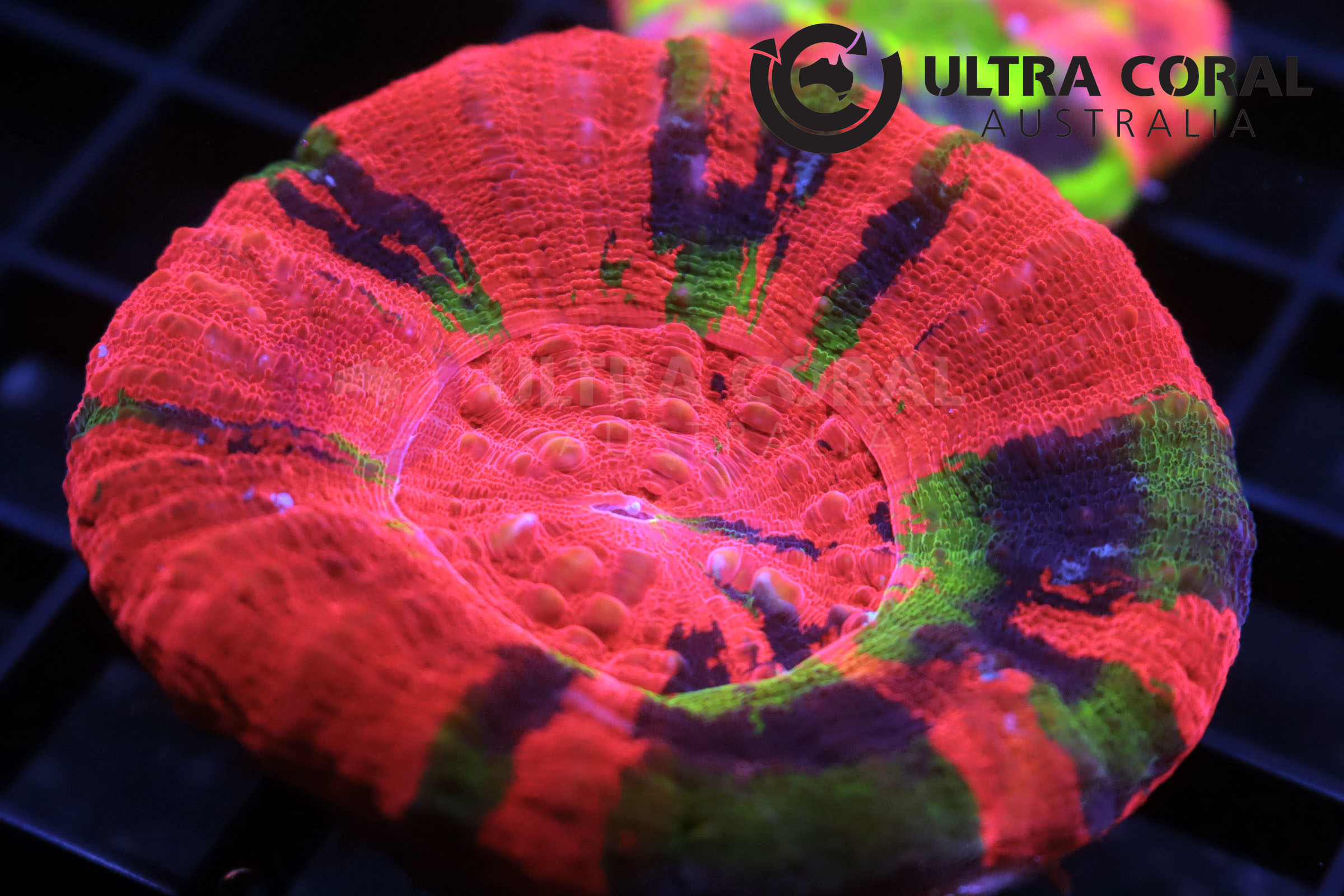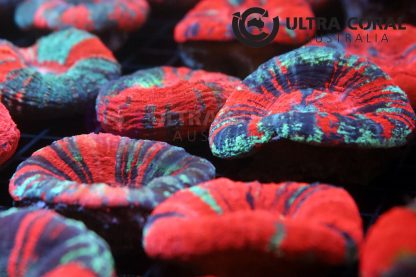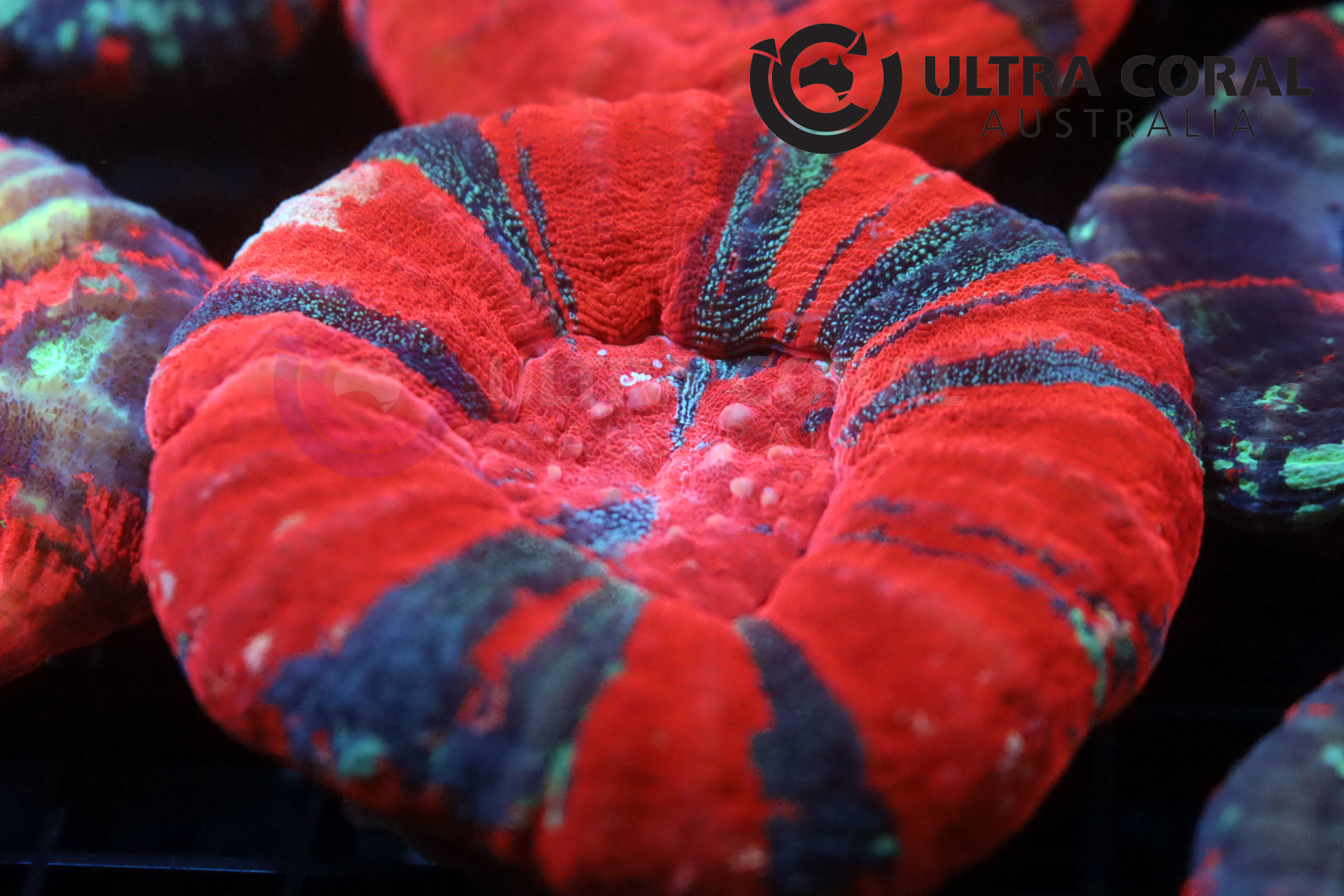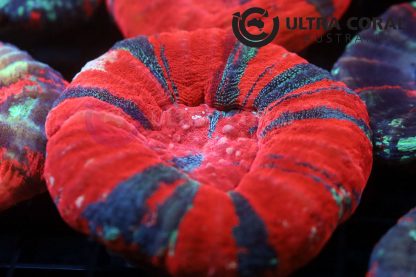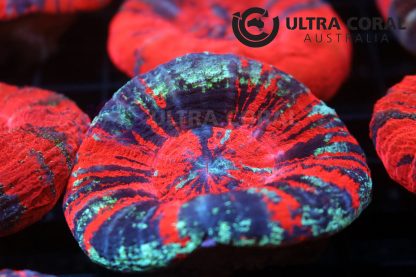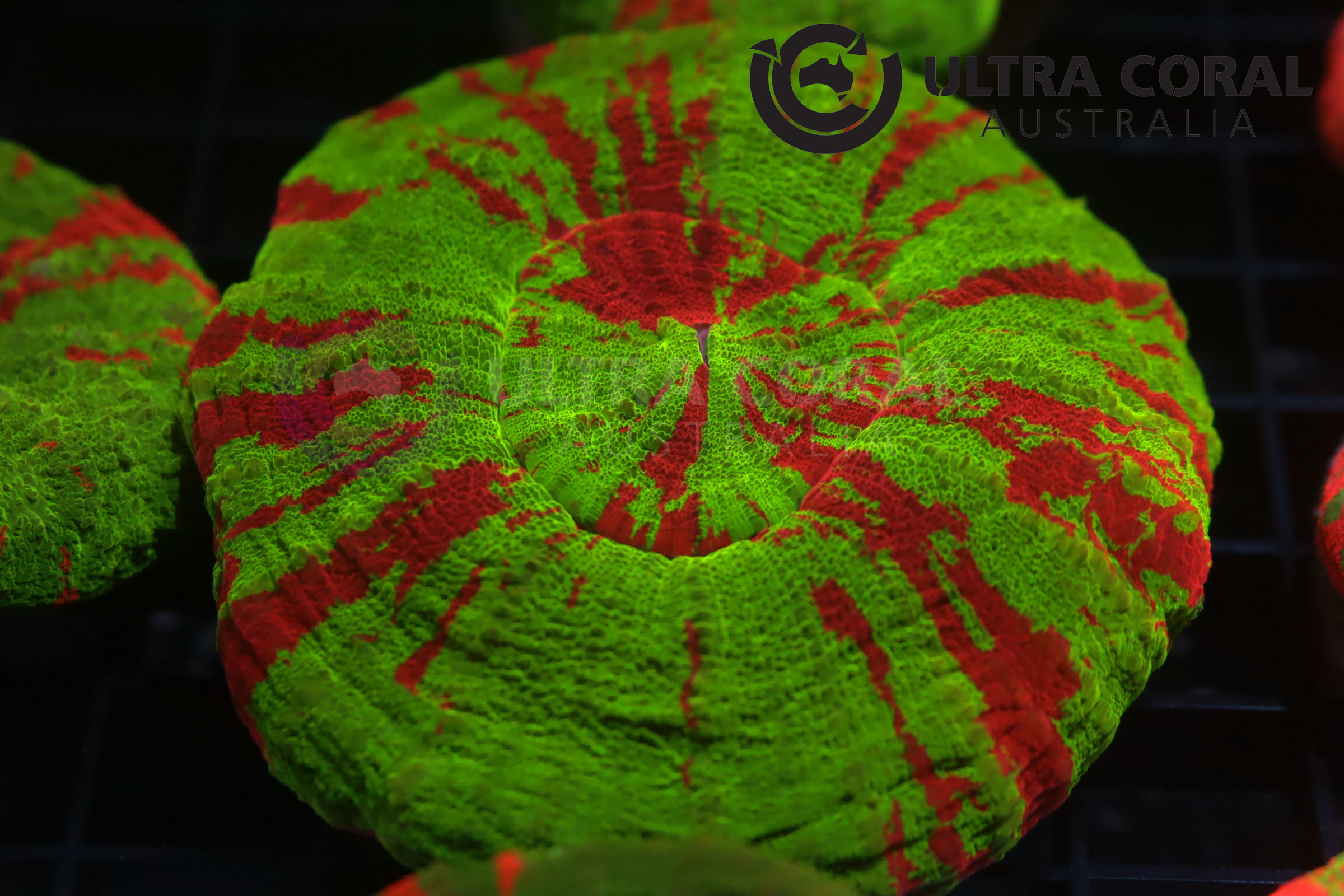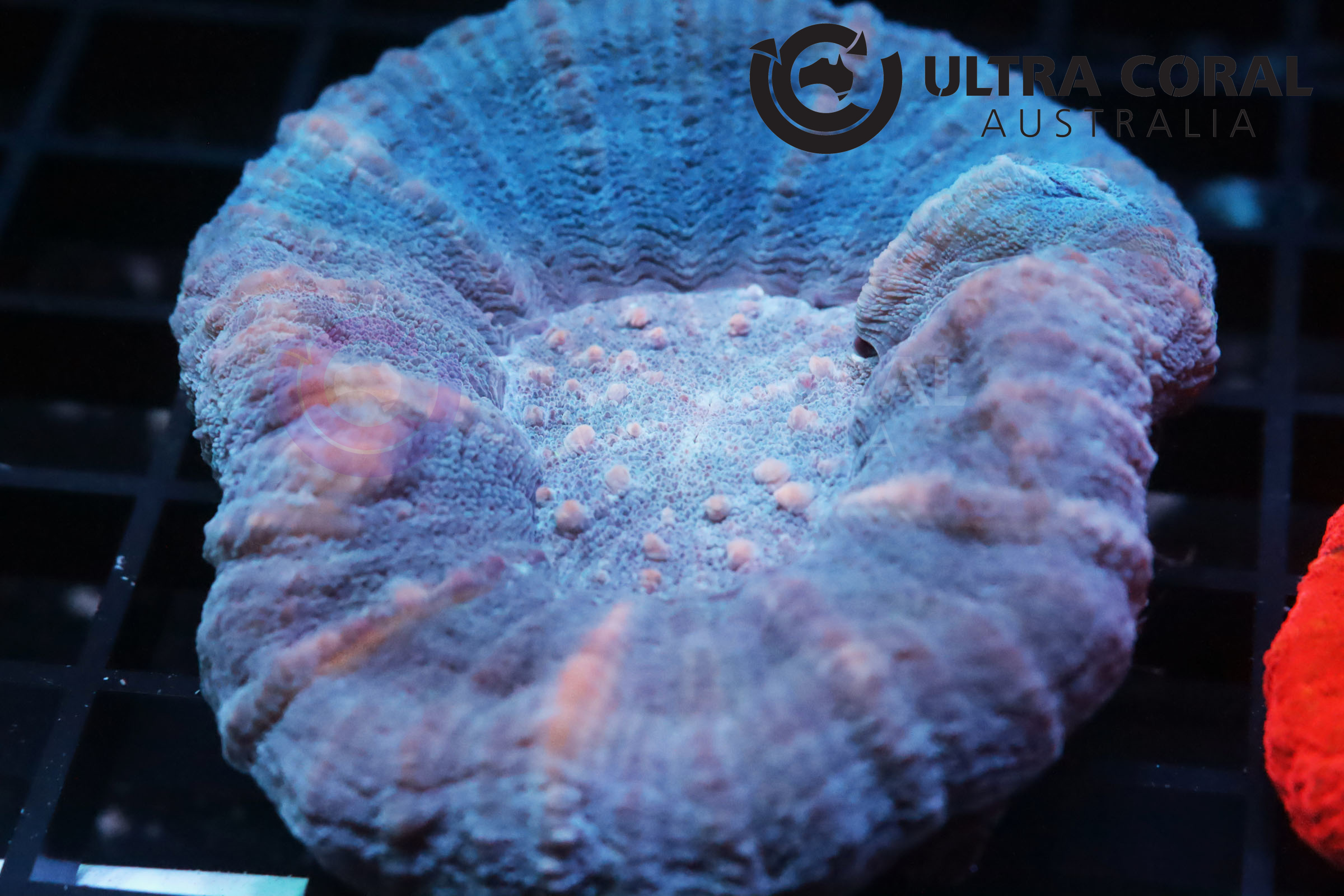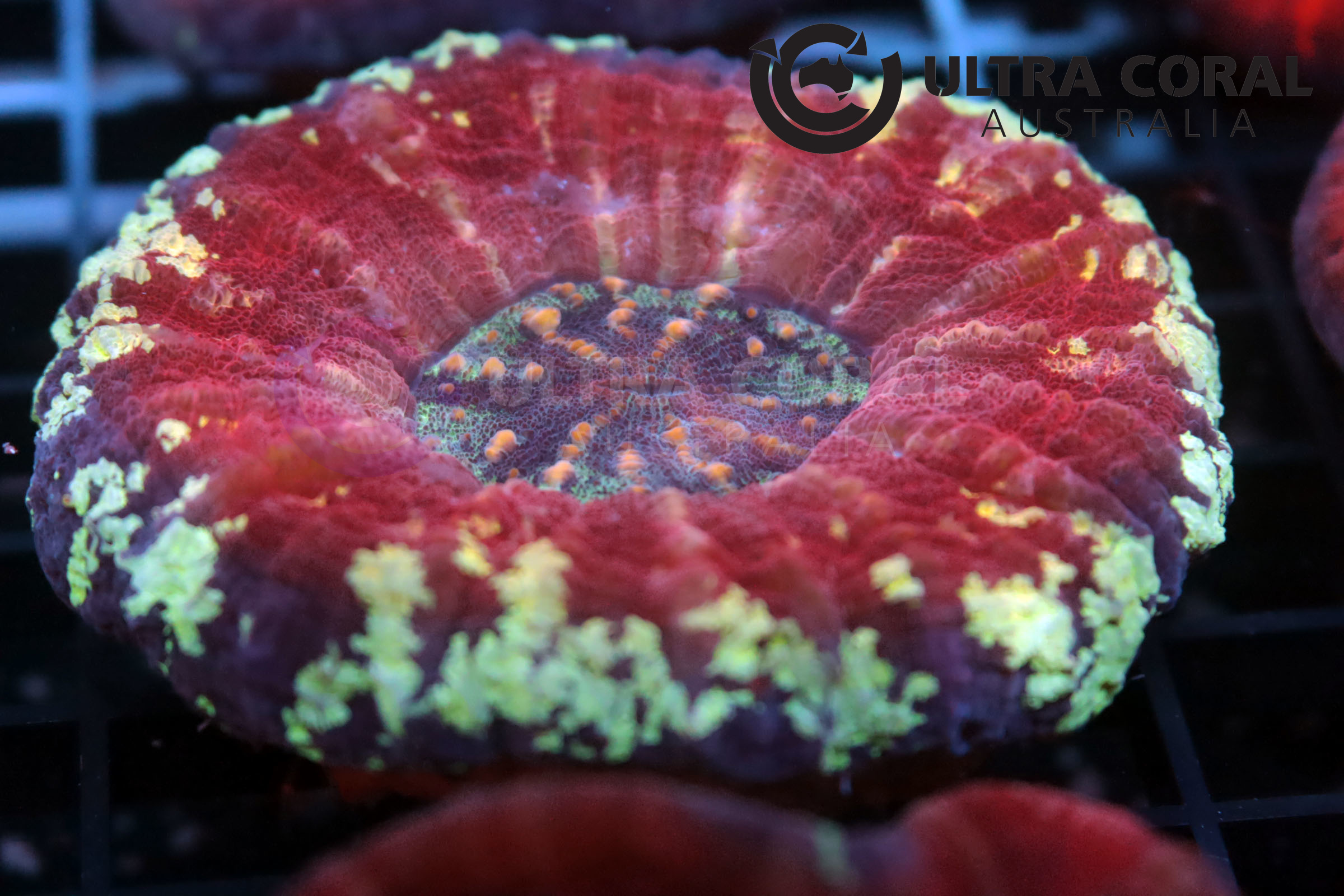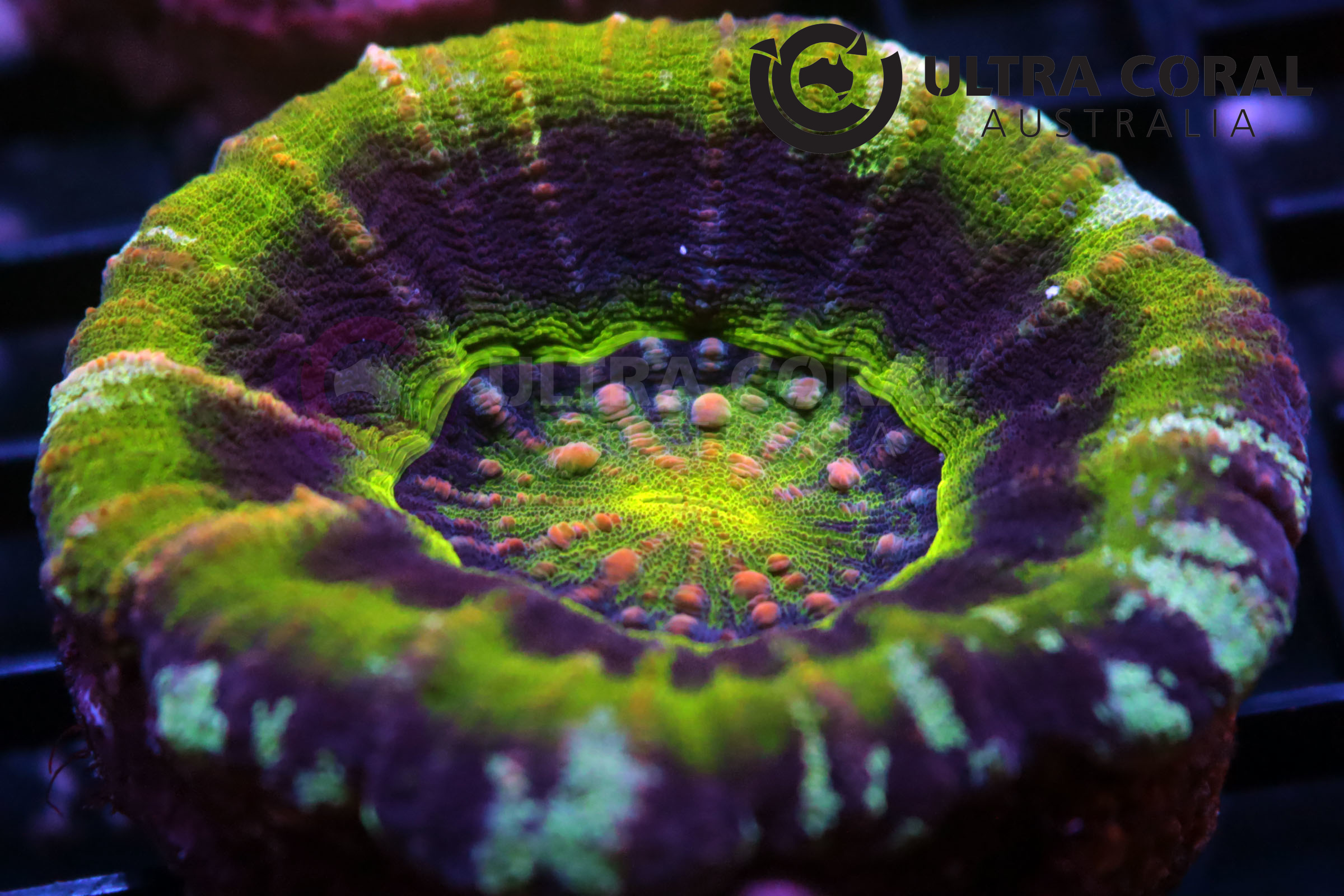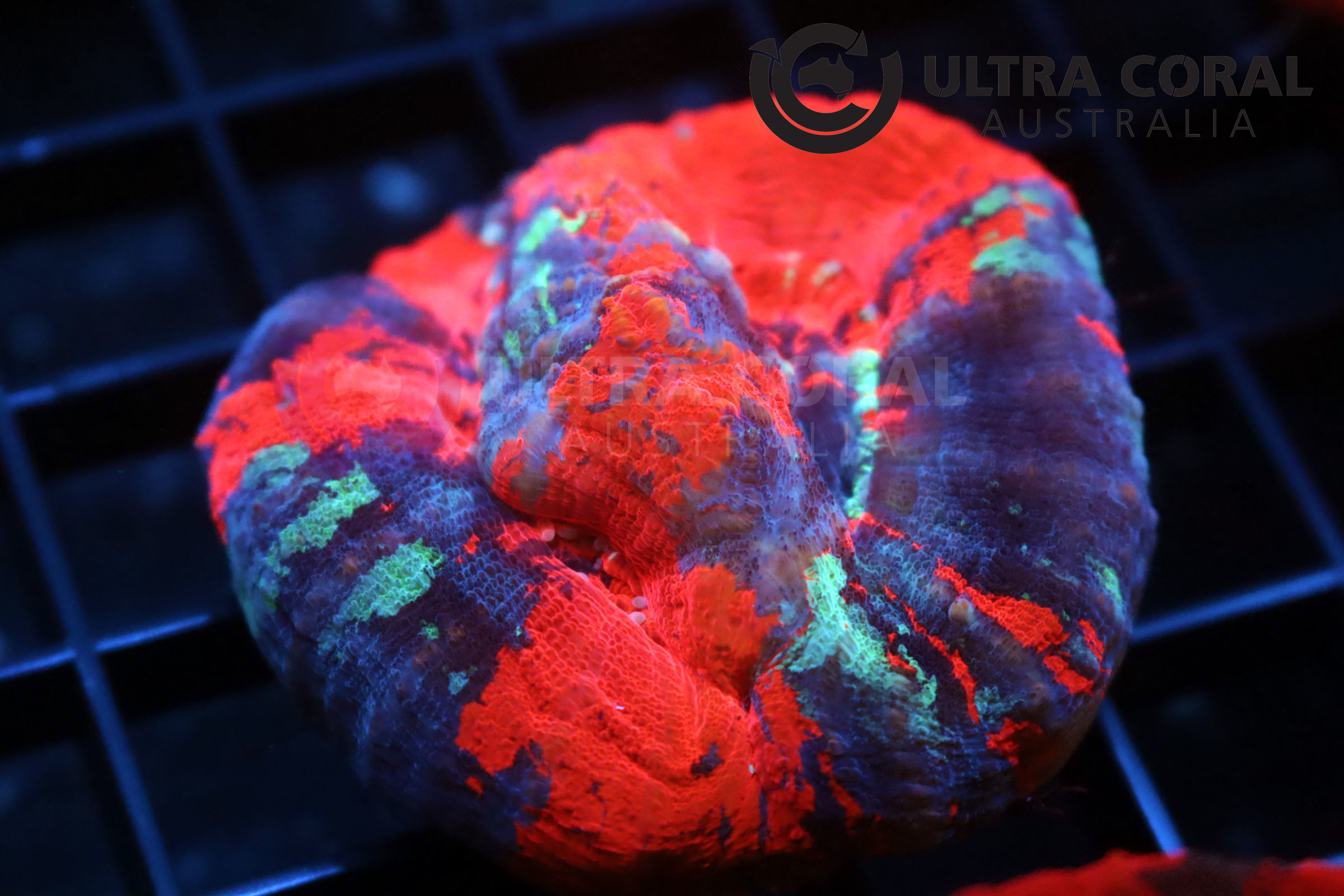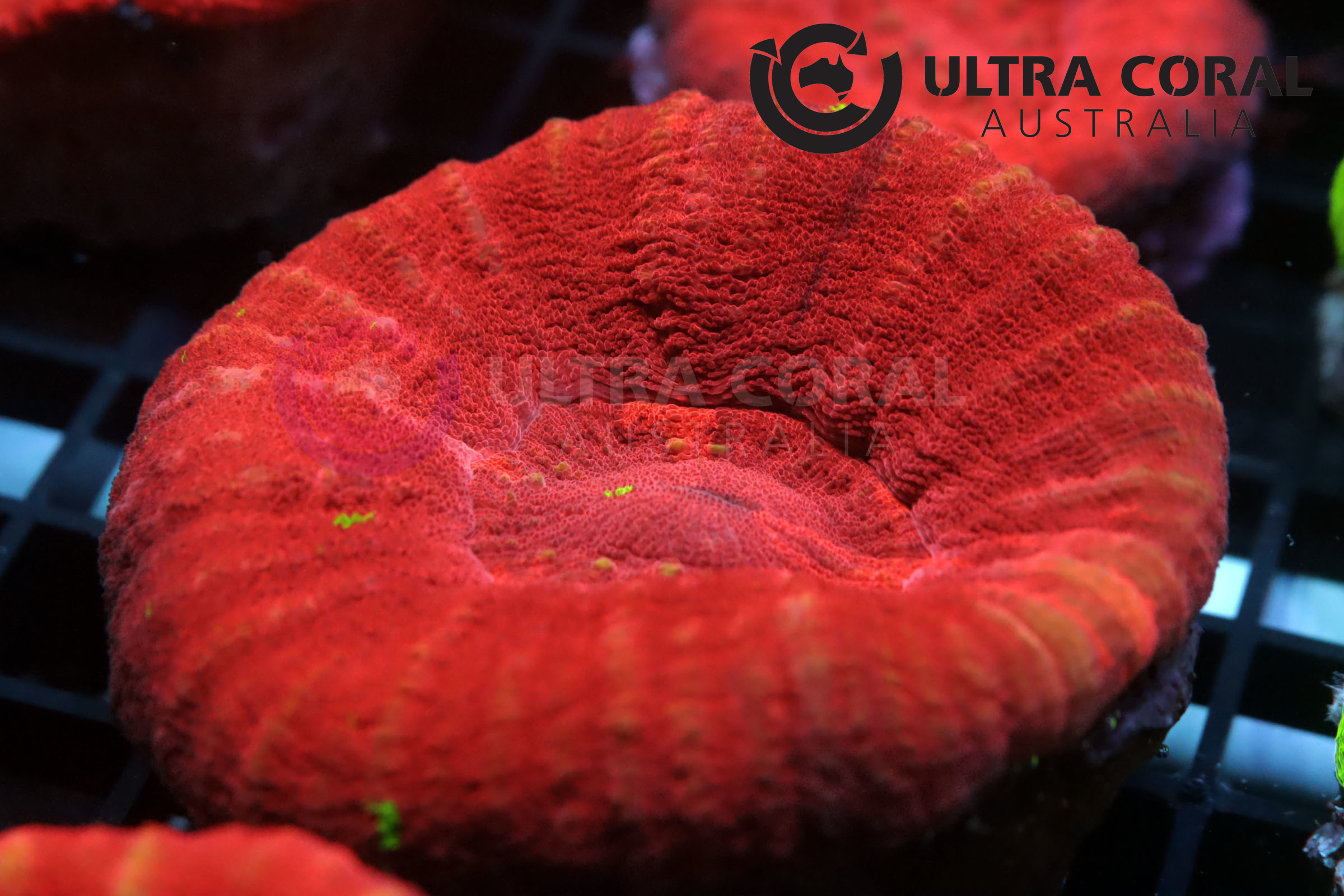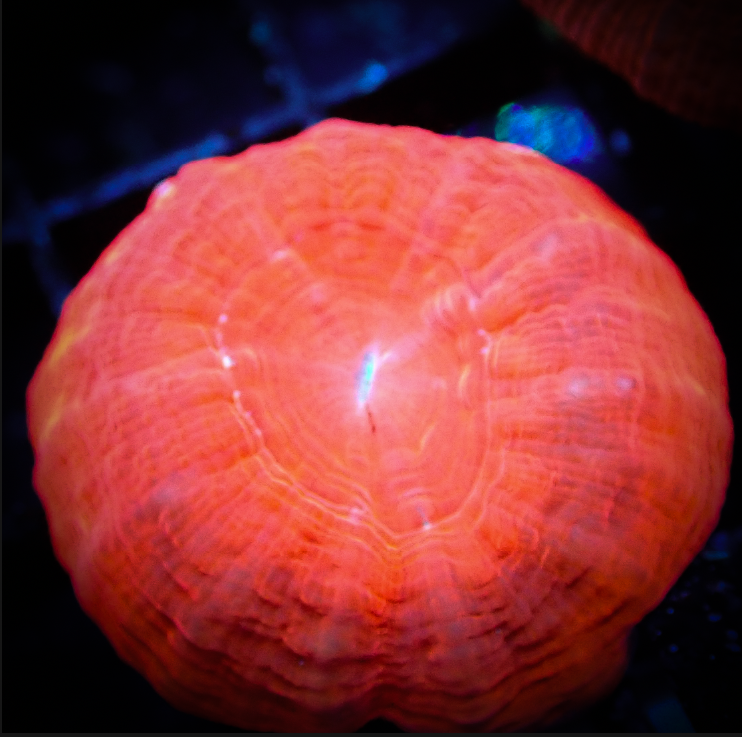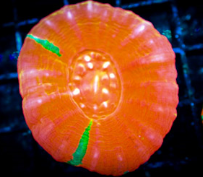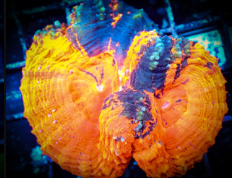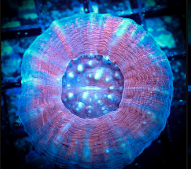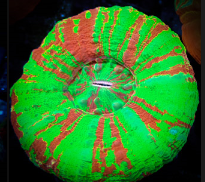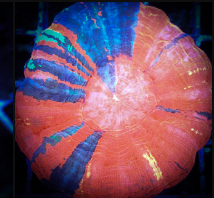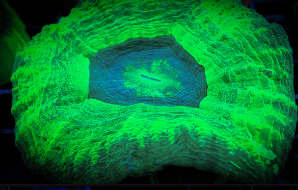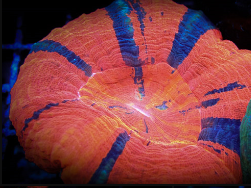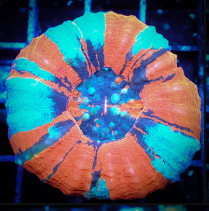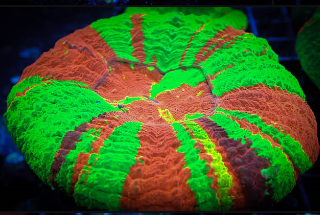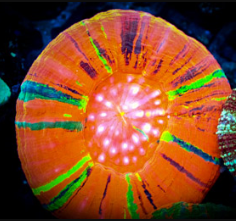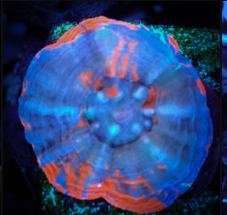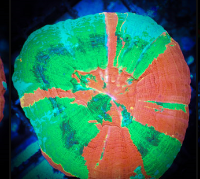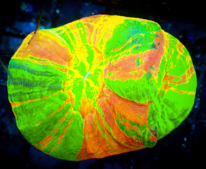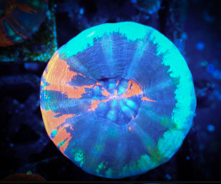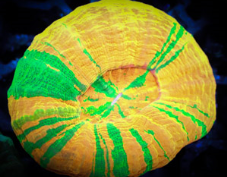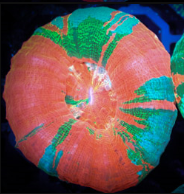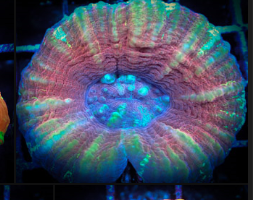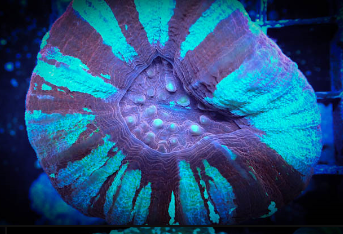Homophyllia australis (Scolymia)

Commonly known as Donut Coral, Button Coral, or Scoly, Homophyllia australis are only found in Australia.
They are solitary with two to four mouths and form a saucer-shaped skeletal structure. Their septa (teeth) are blunt (compared to Lobophyllia) and each individual can have dynamic colouration ranging from green, red, blue, cream, orange, brown or a combination of colours.
They have similarities to Cynarina except for their septa slope outward, are not as pronounced (tall and tooth-like), and are more closely spaced.
Their flesh are heavier and more opaque compared to Cyanarina, which are clear, and the tissue conforms to the shape of the skeleton. They can have small pimpled bumps on the surface, while Cyanarina has exaggerated bubble formations.
In the wild, Homophyllia australis are usually solitary and found in turbid waters on rocks or other hard substrates.
They feed at night where they transform to bring out their tentacles.
Ideally, Homophyllia australis should be fed several times a week.
Basic Water Parameters
pH
8.0 to 8.3
Salinity
34 - 36ppt
Temperature
24.0 - 26.0 Celsius
Husbandry Requirements
Lighiting
50-175 PAR
Flow
Passive circulation
Aggressiveness
Limited ability to damage other corals.
Acclimation Guide
- It is highly recommended to acclimate all corals to a new environment to prevent shocking corals.
- Place the corals in the water from the packing bags and slowly add the water from new environment (Dripping method is recommended).
- Use the water parameter above as a guide.
- When the vessel becomes full , replace the water with the new environment water by a small amount at a time.
- Ensure the water temperature matches with the new environment’s water.
- After the corals have spent adequate time in the acclimation water, gently place the corals to a new environment.
- It is recommended to place new corals under lower light intensity than usually required. Once corals show no signs of stress, it can be moved to higher lighting area gradually.”

